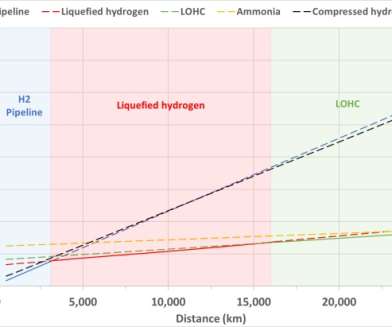Argonne LCA study finds many alternative fuels consume more water than petroleum and natural gas fuels
Green Car Congress
MARCH 9, 2016
They found that many alternative fuels consume larger quantities of water on a per km basis than traditional petroleum and natural gas pathways. The authors concluded that it will be important to consider the implications of transportation and energy policy changes on water resources in the future. —Lampert et al.


































Let's personalize your content